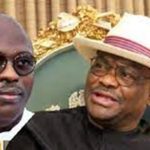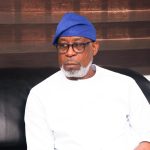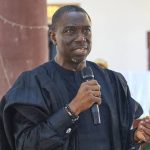Pieth, Stiglitz quit Panama paper panel over government interference
 Two international experts appointed by the Panama government to investigate the use of anonymous offshore companies to evade taxes and hide assets quit Friday because of government interference.
Two international experts appointed by the Panama government to investigate the use of anonymous offshore companies to evade taxes and hide assets quit Friday because of government interference.
Professor Mark Pieth, chair of the Basel (Switzerland) Institute on Governance, told the BBC he resigned from the Panama Papers commission after the government said it would pre-approve all findings.
Joseph Stiglitz, a Columbia University economics professor and Nobel Prize winner, also resigned Friday.
Pieth said, “They told us they were going to decide in the end whether [the panel’s report] is going to be publicized or not.”
Panama president Juan Carlos Varela set up the seven-member panel in April. He said it would function as an independent commission to review Panama’s laws and financial regulations.
Stiglitz said Friday: “I thought the government was more committed, but obviously they’re not. It’s amazing how they tried to undermine us.”
Pieth said Panama officials are “in a state of denial.”
“They were basically saying ‘well, what we’ve been seeing in the Panama Papers is something that you observe everywhere in the world,'” he said.Joseph Stiglitz
Panama’s Ministry of Foreign Affairs told the BBC it had a “strong and real commitment to transparency and international cooperation.”
It said the resignations resulted from “internal differences.”
In early April, the Washington-based International Consortium of Investigative Journalists (ICIJ) started publishing the Panama Papers — more than 10 million records leaked from Panama-based law firm Mossack Fonseca.
In May, the ICIJ launched a searchable database that used the Panama Papers to index 320,000 offshore companies and the people behind them.
The documents named at least a dozen current world leaders and more than 120 other politicians and officials.
It’s not always illegal to own or control anonymous companies. But the companies are sometimes used to evade taxes, launder money, and hide assets.
In a statement on its website, Mossack Fonseca said in nearly 40 years of operation, it hasn’t been charged with criminal wrongdoing.
“We are not involved in managing our clients’ companies,” the statement said.
After the ICIJ published the Panama Papers, the United States and UK announced steps to restrict the use of anonymous companies. Since the documents were published, Mossack Fonseca closed its offices in Jersey, Isle of Man and Gibraltar, and cut back its presence in Nevada and Wyoming. – FCPA blog








